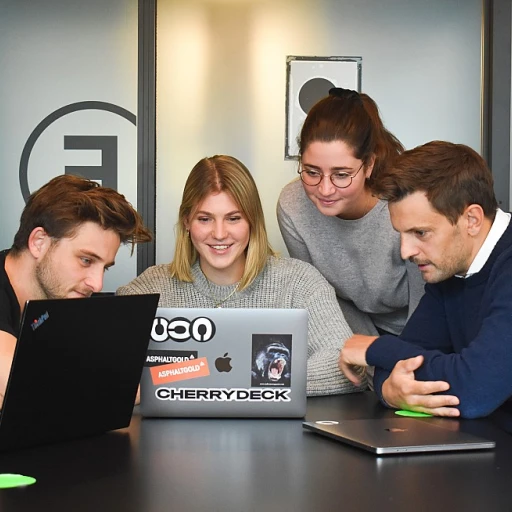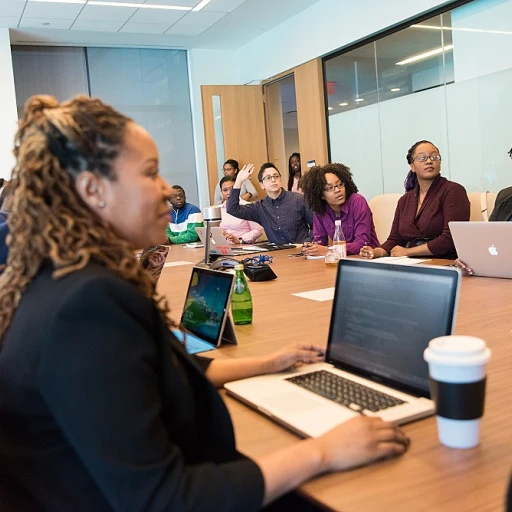
Understanding the Importance of Pre-Hire Solutions
Recognizing the Significance of Pre-Hire Strategies
In the competitive world of retail and hospitality, understanding pre-hire solutions is essential for achieving long-term success. Pre-hire strategies play a crucial role in shaping the recruitment process and ensuring that the right candidates are selected for the job. With the challenges faced by the hospitality industry, such as high turnover rates and a constant demand for top talent, effective pre-hire solutions become indispensable. The hiring process is not merely about filling a position; it’s about enhancing the overall candidate experience and improving the employer brand. A well-developed pre-hire strategy helps organizations streamline their staffing solutions, reduce time to hire, and improve the quality of hire. This is where initiatives like video interviews and applicant tracking systems come into play, offering efficient ways to screen potential candidates. Professional mentoring emerges as a vital component of pre-hire solutions, particularly in industries like retail hospitality. Not only does mentoring strengthen the recruitment process by aligning candidates with organizational values, but it also equips future employees with necessary skills and insights. The effective integration of mentoring into the pre-hire process can also assist in talent acquisition and management, leading to reduced recruitment costs and enhanced customer service delivery. An adept understanding of pre-hire solutions sets the foundation for fostering a robust hospitality staffing environment. By addressing the vital role of preparing candidates for hospitality roles prior to onboarding, businesses can elevate their staffing standards and achieve greater operational efficiency. To explore more about the pathways to a successful pre-hire strategy, consider delving into related insights on navigating professional mentoring. This approach ensures adaptability amidst evolving staffing demands and enhances both recruitment and service excellence.The Role of Professional Mentoring in Recruitment
The Influence of Mentoring on the Hiring Process
In the retail and hospitality industries, the recruitment process is not just about filling positions; it's about finding the right fit for specific roles that contribute to the long-term success of the organization. Professional mentoring can play a pivotal role in ensuring that businesses attract and retain top talent well-suited to the demands of the industry.
Mentoring provides critical expertise and guidance, enhancing the candidate experience during the recruitment process. It allows hiring managers to better identify skill gaps, evaluate candidates effectively, and improve overall staffing solutions. By leveraging the experience of seasoned professionals, organizations can refine their screening and recruiting strategies, ultimately reducing time and cost per hire.
Building a Competitive Employer Brand
Professional mentoring also helps in building a strong employer brand that attracts potential job seekers in the retail hospitality sectors. Employers that invest in mentoring programs send a clear message to candidates about their commitment to employee development and career growth. This can be particularly appealing to individuals seeking a supportive and dynamic work environment, thus enhancing the employer's appeal.
Crafting a Tailored Recruitment Strategy
By incorporating mentoring into recruiting efforts, organizations can create a more personalized recruitment strategy that aligns with their business goals. Mentors can assist in identifying and cultivating the specific skills required for roles in the hospitality industry, ensuring that new hires are prepared to provide exceptional customer service and drive business results.
Ultimately, integrating professional mentoring into the recruitment process helps organizations not only attract candidates who are the best fit but also engage them in a way that fosters retention and advancement. For more insights into enhancing your hiring strategy through professional development, explore options at the Pro-Tech Skills Institute.
Identifying Key Skills for Retail and Hospitality
In the retail and hospitality sectors, identifying the right capabilities among potential hires is paramount to ensuring effective service delivery and customer satisfaction. The dynamic nature of these industries necessitates a keen understanding of the specific skills and attributes that candidates must possess to excel.
Key Abilities and Attributes
The retail and hospitality industries generally seek candidates who exhibit exceptional customer service abilities, adaptability, and attention to detail. Moreover, problem-solving skills are highly prized, as frontline staff must often troubleshoot on-the-fly to maintain a positive customer or client experience.
Communication mastery remains pivotal. Employees interact continually with customers, necessitating clear and effective exchange of information. Additionally, teamwork and collaboration are fundamental, given the collaborative nature of roles like serving staff or sales associates.
Experience and Background
While direct experience in either industry can be advantageous during the recruitment process, hiring managers and talent acquisition specialists often value transferable skills from other sectors. This flexibility broadens the talent pool and can lead to the recruitment of innovative individuals who bring fresh perspectives to retail hospitality roles.
Using Professional Mentoring to Align Skills
Professional mentoring can assist in accurately identifying these core skills in potential candidates. By incorporating mentoring programs within the recruitment process, hiring managers can assess candidates’ skills more holistically while simultaneously enhancing the candidate's journey through tailored feedback and guidance. This approach has shown promise in reducing time hire and improving the quality of hires.
For additional insights on how mentoring impacts skill and capability development during recruitment, explore the influence of effective mentoring programs on skill recognition.
Implementing Mentoring Programs in Pre-Hire Processes
Integrating Mentoring into the Hiring Process
Incorporating professional mentoring into pre-hire processes can significantly enhance the recruitment strategy for retail and hospitality sectors. This integration not only aids in identifying top talent but also ensures a smoother transition for candidates into their new roles. By focusing on mentorship, hiring managers can bridge the gap between recruitment and long-term employee success.
Steps to Implement Mentoring Programs
- Define Objectives: Clearly outline what the mentoring program aims to achieve. This could range from improving candidate experience to enhancing customer service skills.
- Select Mentors: Choose experienced professionals within the industry who can offer valuable insights and guidance to potential hires.
- Develop a Structured Program: Create a framework that includes regular check-ins, feedback sessions, and skill development workshops.
- Utilize Technology: Implement tools like video interviews and applicant tracking systems to streamline the mentoring process and ensure consistent communication.
- Evaluate and Adjust: Regularly assess the effectiveness of the mentoring program and make necessary adjustments to meet the evolving needs of the industry.
Benefits of Mentoring in Pre-Hire Solutions
By embedding mentoring into the recruitment process, companies can enhance their employer brand and attract high-quality candidates. This approach not only reduces time to hire but also improves the overall candidate experience. Moreover, it prepares candidates for the specific demands of the retail and hospitality industries, ensuring they are well-equipped to deliver exceptional service from day one.
Ultimately, mentoring serves as a vital component of staffing solutions, aligning with the goals of talent acquisition and management. By focusing on mentorship, organizations can foster a culture of continuous learning and development, which is crucial for maintaining a competitive edge in the hospitality and retail sectors.
Case Studies: Successful Mentoring in Pre-Hire Solutions
Insights from Proven Mentoring Initiatives
The retail and hospitality industries offer unique challenges and opportunities when it comes to recruitment and pre-hire strategies. Professional mentoring schemes have been instrumental in refining these processes, contributing significantly to successful hiring outcomes. Examining past mentoring initiatives provides valuable insights for leveraging mentoring as a powerful tool in pre-hire solutions.- Customized Mentoring in the Retail Industry: A case study in a prominent retail chain reveals the impact of tailored mentoring programs in improving candidate experience and retention rates. The company implemented a comprehensive mentorship model, focusing on role-specific skills and customer service excellence. This approach resulted in faster onboarding times and a higher retention rate of top talent.
- Hospitality Sector's Focus on Service Excellence: Within the hospitality industry, customer service is paramount. Through mentoring, candidates are groomed to embrace the company's service culture from day one. A leading hospitality staffing company integrated mentorship in their hiring process, focusing on soft skills and hospitality-specific protocols. This initiative not only streamlined the recruitment process but also ensured new hires were aligned with the brand's values from the onset.
- Video Interviews and Mentorship: In the fast-paced world of hospitality and retail hiring, leveraging technology such as video interviews combined with mentoring has proven effective. By preparing candidates through mock interviews and feedback sessions, companies like Gecko Hospitality have reported enhanced candidate quality and alignment with industry expectations.
- Use of Applicant Tracking Systems (ATS): Mentoring programs that integrate ATS solutions ensure that candidates are effectively screened and matched with roles that suit their capabilities. This targeted approach not only aids in faster staffing solutions but also strengthens the employer brand by showcasing a commitment to candidate growth and development.
Challenges and Solutions in Mentoring for Pre-Hire
Overcoming Common Obstacles in Mentoring Programs
Implementing professional mentoring in pre-hire processes can significantly enhance the recruitment experience, yet it comes with its own set of challenges. Understanding these hurdles and finding effective solutions is crucial for hiring managers and talent acquisition teams in the retail and hospitality sectors.
Balancing Time and Resources
One of the primary challenges is the allocation of time and resources. Mentoring requires a commitment from both mentors and candidates, which can strain existing staffing solutions. To address this, organizations can integrate mentoring into the recruitment process by utilizing video interviews and applicant tracking systems to streamline communication and feedback.
Ensuring Consistent Candidate Experience
Maintaining a consistent candidate experience across various roles in the retail and hospitality industry is another challenge. Mentors must be trained to provide uniform guidance and support, ensuring that all candidates receive the same level of service. This consistency helps in building a strong employer brand and attracts top talent.
Adapting to Industry-Specific Needs
The retail and hospitality industries have unique demands, such as customer service excellence and adaptability. Mentoring programs must be tailored to address these specific skills. By focusing on industry-relevant training, mentors can better prepare candidates for the challenges they will face in their roles.
Measuring Success and Impact
Finally, evaluating the success of mentoring programs can be difficult. Organizations need to establish clear metrics to assess the impact of mentoring on the hiring process. This might include tracking time to hire, candidate satisfaction, and long-term retention rates. By doing so, companies like Gecko Hospitality can refine their mentoring strategies to better serve the hospitality staffing needs.













